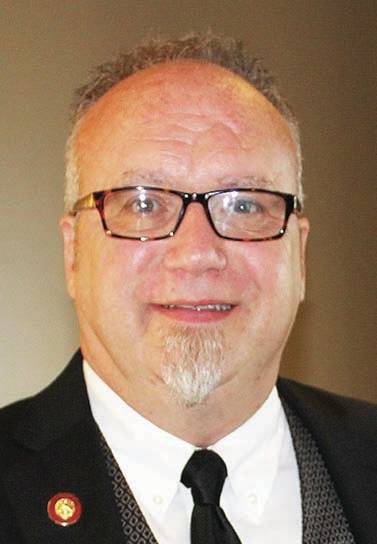Ky. leads the way in production, preservation of oral histories
Published 12:44 pm Monday, July 9, 2018
In a recent article in the “New York Review of Books,” historian Garry Wills wrote that the Chicago Historical Society has digitized more than 5,600 interviews conducted by Studs Terkel, the author and radio host who died in 2008.
Among Terkel’s legacy was his popularization of oral histories. In many instances, Wills writes, “Terkel wanted to talk with ‘ordinary people’—to show that there are no ordinary people.” The result of these conversations were nine books, including the Pulitzer Prize-winning “The Good War: An Oral History of World War Two.”
While Terkel brought the lives of ordinary Americans to the literary forefront, Kentucky is a national leader when it comes to the production and preservation of oral histories. This is in thanks to the work of the Kentucky Oral History Commission (KOHC), which was established in 1976.
As Americans celebrated the U.S. Bicentennial, the KOHC began to facilitate the creation of oral histories across the state. Today, the commission preserves existing oral histories, trains Kentuckians about how to conduct interviews and grants funds to support oral history projects. Administered by the Kentucky Historical Society, the KOHC remains the only state-supported entity that exists for this purpose.
According to Sarah Schmitt, the Kentucky Historical Society’s oral history administrator, the KOHC’s work has been successful. There are now, for example, more than 35,000 KOHC funded interviews held in repositories across the state.
Interview topics include Kentuckians’ memories of the Civil Rights movement, Rosenwald Schools, veterans’ experiences and stories about communities of faith, artists, musicians, burial traditions and more.
Because the KOHC began its efforts by interviewing residents from every Kentucky county, Schmitt said that there is a broad, statewide representation among the interviews.
Today, the KOHC is working to make existing collections even more accessible. The commission grants funds to index and transcribe interviews, which helps repositories make these collections available for use. The KOHC also grants funds for communities to use existing oral histories for public projects, including museum exhibitions, podcasts, radio shows, tourism development and more.
“We invite you to please come use our collection and to make use of oral history clips in other media,” Schmitt said.
Interviews across the state are also accessible via “Pass the Word,” an online portal that links oral history collections found in Kentucky repositories. This sharing of resources is among the reasons that Kentucky leads the way when it comes to oral history.
The commission’s work, however, is far from complete.
“We want to fill in the blanks in the historical record by making sure that we collect perspectives from the folks who lived and experienced important events,” Schmitt said.
Current priorities include a number of relevant topics, including issues related to women and gender, interviews about agriculture and Kentucky’s economy, labor movements and more. According to Schmitt, interviews of immigrants who have come to Kentucky are also a priority.
“We’re interested in all stories of Kentuckians,” Schmitt said. “We’re especially interested in newcomers, because the minute you set foot in Kentucky you’re a Kentuckian. We want to support finding and collecting the stories of people who call Kentucky home now.”
One recent example of the KOHC’s work can be found at the Kentucky Museum at Western Kentucky University. The KOHC provided funds for WKU to interview members of Bowling Green’s Bosnian community. This project eventually evolved into an exhibit about Bosnian experiences in the city.
According to Brent Bjorkman, the director of the Kentucky Museum, the KOHC grant had a significant impact on the project.
“KOHC grant funding allowed us to share the powerful narratives gathered as part of our Bosnian oral history project with thousands of online visitors,” Bjorkman said. “Our exhibit continues to inspire as we share the stories of one of Kentucky’s newer immigrant communities through their own collective voice.”
While historians have found the KOHC collections useful to their research, others have found personal connections.
Schmitt said that a number of people have contacted her saying they found interviews with deceased family members. This enabled them to listen to that person’s voice once again, providing a meaningful connection to their family’s past.
In addition to saving memories of forgotten Kentucky traditions and providing primary source interviews for future historians, the state’s oral history collections are connecting communities to their past. Just as Studs Terkel used interviews to bind Americans to authentic parts of our history, the KOHC is laying a critical foundation to teach future generations about what it means to be a Kentuckian.
Stuart W. Sanders is the Kentucky Historical Society’s history advocate.






